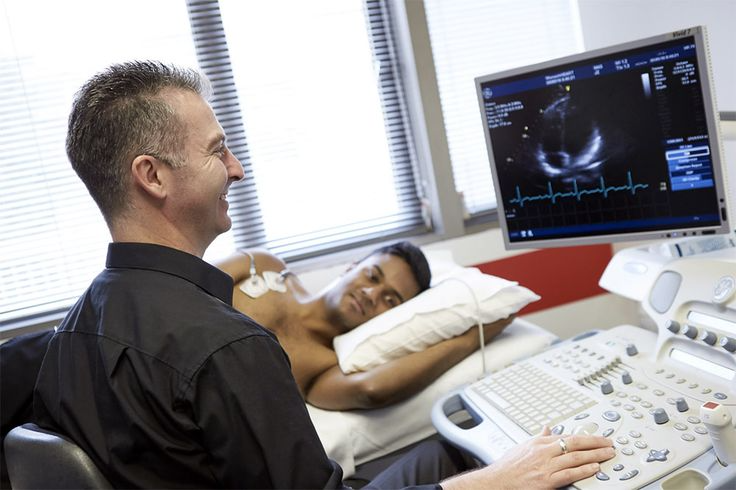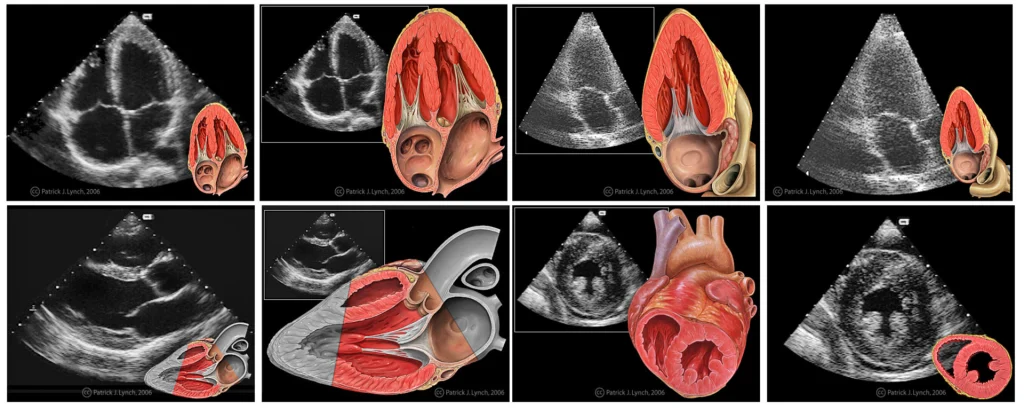When it comes to heart health, you should need to understand that is it your heart is working well. One of the most reliable tools doctors use to assess heart performance is the echocardiogram. This non-invasive imaging test provides detailed visuals of your heart, helping to identify potential issues and monitor ongoing conditions.
What Is an Echocardiogram?
An echocardiogram is a diagnostic test that uses high-frequency sound waves, or ultrasound, to create live images of your heart. These images allow healthcare providers to evaluate the heart’s structure, functionality, and blood flow in real-time. Unlike other imaging methods like X-rays, echocardiograms do not involve radiation. Thus making them a safe and widely used option for both routine checkups and complex diagnoses.

How Does an Echocardiogram Work?
The procedure involves a device called a transducer, which emits sound waves that bounce off the heart’s structures. These echoes are then converted into detailed images by a computer.
A technician applies a special gel to your chest to ensure smooth movement of the transducer and better transmission of sound waves. While lying on an exam table, you may be asked to change positions or briefly hold your breath to capture various angles of your heart.
Types of Echocardiograms
Depending on the specific diagnostic needs, there are several types of echocardiograms:
1. Transthoracic Echocardiogram (TTE)
The standard and most common form of echocardiogram. A transducer is placed on your chest to capture images of the heart.
2. Transesophageal Echocardiogram (TEE)
For clearer images, particularly of the back of the heart, a thin tube with a transducer is passed down the esophagus. Sedation is often used for patient comfort.
3. Stress Echocardiogram
Performed during or immediately after exercise, this test evaluates how the heart functions under physical stress, often to detect coronary artery disease.
4. Doppler Echocardiogram
This type measures blood flow speed and direction, making it useful for diagnosing valve issues or other abnormalities in blood circulation.

Why is this test so important?
Doctors recommend echocardiograms for a variety of reasons, including:
- Diagnosing heart valve disorders like stenosis or regurgitation.
- Detecting structural abnormalities, such as congenital heart defects.
- Assessing the heart’s pumping efficiency in conditions like heart failure or cardiomyopathy.
- Monitoring the effectiveness of treatments or surgical interventions.
- Identifying fluid buildup or blood clots around the heart.
What to Expect During the Procedure
Most echocardiograms are straightforward and painless. Here’s what you can expect:
1. Preparation
You’ll lie on a table, and a gel will be applied to your chest to improve sound wave transmission.
2. Imaging
The technician moves the transducer across your chest, capturing live images of your heart.
3. Special Cases
For TEE or stress echocardiograms, additional preparation, such as sedation or physical activity, may be required.
The test typically lasts between 30 and 60 minutes, depending on the type of echocardiogram being performed.
Main Benefits of Echocardiograms
Echocardiograms are widely recognized for their effectiveness and safety. Some of their primary benefits include:
- Non-Invasive Nature: Most echocardiograms require no incisions or invasive procedures.
- Radiation-Free: Unlike X-rays or CT scans, there’s no exposure to harmful radiation.
- Detailed Insights: Real-time imaging provides valuable information about heart function.
- Early Detection: Helps identify potential heart issues before they become severe.
Are There Any Risks or Limitations?
Echocardiograms are generally considered very safe. However, transesophageal echocardiograms (TEE) may cause mild throat discomfort or, in rare cases, reactions to sedation.
As for limitations, some factors, such as obesity or lung conditions, may reduce the clarity of images, requiring additional diagnostic tools like MRI or CT scans for better visualization.
Tips for Patients
- Wear comfortable, loose-fitting clothing on the day of the test.
- Inform your doctor about any medications or allergies, especially if undergoing a TEE.
- For stress echocardiograms, avoid eating heavy meals and follow your doctor’s guidelines on caffeine or medication restrictions.
Do You Know
Conclusion
An echocardiogram is a vital tool for evaluating and maintaining heart health. It offers a safe, detailed, and effective way to diagnose and monitor various heart conditions. Whether you’re experiencing symptoms like shortness of breath or irregular heartbeats, or need routine monitoring for an existing condition, an echocardiogram provides crucial insights into your heart’s well-being.
By staying proactive and understanding the role of this diagnostic test, you’re taking an important step toward better heart health and overall wellness. Always consult with your healthcare provider to determine if an echocardiogram is right for you.
More
Get the consultation for the best echocardiogram test in Dubai click here.
FAQs
- What conditions can an echocardiogram detect?
An echocardiogram can help diagnose a range of heart conditions, including valve disorders (stenosis or regurgitation), heart failure, cardiomyopathy, congenital heart defects, blood clots, fluid buildup, and coronary artery disease. - Is an echocardiogram painful?
No, an echocardiogram is generally painless and non-invasive. You may feel slight pressure from the transducer during a transthoracic echocardiogram, but it is not uncomfortable. For a transesophageal echocardiogram, mild sedation is used to ensure comfort. - How do I prepare for an echocardiogram?
A standard transthoracic echocardiogram requires no special preparation. However, for a transesophageal or stress echocardiogram, you may need to avoid eating or drinking for a few hours beforehand and follow specific instructions from your doctor. - Are there any risks associated with echocardiograms?
Echocardiograms are very safe. The only potential risks are minor, such as throat discomfort after a transesophageal echocardiogram or rare reactions to sedation. Transthoracic and Doppler echocardiograms carry no risks.